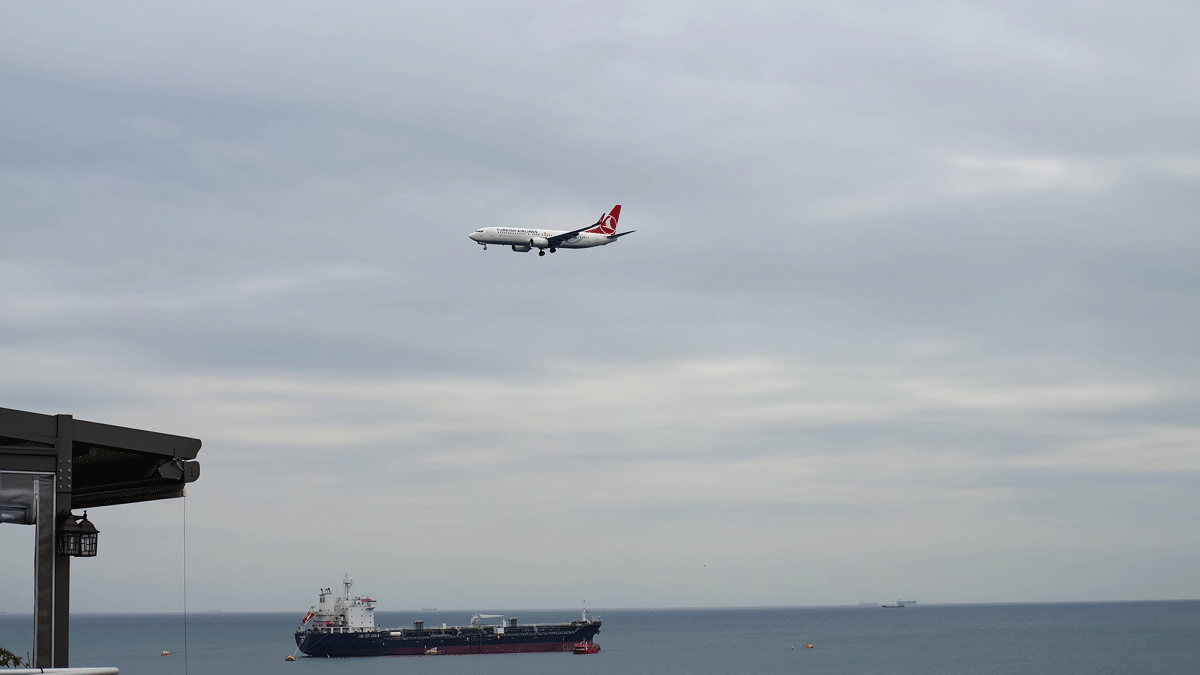
The once critically gnarled global supply chain is smoothing out somewhat and the perishable cargoes that switched from ocean vessels to air freight are returning to sea transport.
That’s the assessment of Chris Connell, senior vice president of perishables-North America, for Kuehne + Nagel’s subsidiary Commodity Forwarders, Inc., a Los Angeles-based large forwarder of time-sensitive products globally. Space demands are slowly returning to pre-pandemic levels in many trade lanes.
“Starting 18 months ago, we had major delays at seaports, labor shortages, long lines, trucking difficulties and it was chaos for ocean carriers. Growers, packers, and shippers of perishable items had no choice but to put more traffic into air freight,” Connell recalled in an interview with the American Journal of Transportation (AJOT).
Then the industry started seeing in the summer a “heavy pivot” from air freight back to sea freight as ocean terminals became less congested and sailing schedules more reliable, he added.
Connell said air cargo belly operators had their labor issues as well, with shortages of ground handling staff but that situation was “more compounded” with sea freight operators than air cargo.
Asian Air Capacity Not back to Pre-Pandemic
Meantime, he said, there are still fewer aircraft—passenger and freighters—going into Asia than during the pre-pandemic. “We had hoped to see that air space capacity equalize itself in the summer of 2023 but with the strong U.S. dollar being a wild card in global trade, we will just need to wait and see how the supply and demand of both passenger travel that puts more cargo capacity in the air and peak perishable cargo demand, matches up.”
Pamela Mora, branch manager of HPL Apollo, a Miami-based all perishables forwarder, said air freight rates are “going down, capacity is expanding, and staffers have been hired. It’s not like the situation we had before.”

Perishable commodities are now moving northbound from Latin America to the U.S, she said, including berries out of Chile, asparagus from Peru, and bananas from Costa Rica to name a few. Major widebodied carriers moving perishables northbound, she added, including Avianca and Atlas widebodies out of Colombia plus UPS and LATAM jets.
Currently, the cherry season is dominating other perishable commodities and export space to the U.S. “The season for Argentinian cherries ends in January,” Mora said. “The only steady year-round commodity we have is okra.”
HPL Apollo, which has 60,000 square feet of perishable storage facilities in Miami plus cool and refrigeration terminals in Los Angeles and San Francisco, is also carrying “holiday flowers” from Colombia and Ecuador for Thanksgiving, Christmas, Valentine’s Day, and Mother’s Day,” according to Mora.
Additionally, Miami serves as a transshipment point for Latin American perishables to Europe, she pointed out. The commodities? “Flowers and mangoes to Madrid and Amsterdam via mainly Ethiopian and KLM Airlines.”
Mora summed up that perishable air freight commodities “should go down regionally and worldwide giving shippers and buyers the opportunities to save more money. (Air freight) prices have been rising for the last three years and that’s now changing or about to change.”
Routing From Latin America
A major passenger airline with an extensive cargo department—American Airlines—is also an aggressive perishable cargo carrier, according to Lorena Sandoval, sales director for Latin America, the Caribbean, Eastern U.S., and Canada.

A widebody, belly freight operator out of Latin America, American, she said, is moving flowers northbound from Colombia and Ecuador, papayas from Brazil, salmon from Chile, and berries from several South American countries. Southbound from the U.S., the carrier moves time-sensitive pharmaceuticals but no perishables.
Routing northbound from Latin America includes flights to the major cargo centers in Miami, Dallas-Fort Worth, and New York’s JFK airports. Miami is more than a destination city, it’s also a “transit” city for Latin American perishables, Sandoval told the AJOT in an interview.
A less-than-year-old perishables program, she said, involves moving Kosher meat from Argentina, storing it in Miami’s confirmed space cooler, and loading it aboard a daily flight to Tel Aviv. “We have handling and caring knowledge including transit time guidelines, complete shipment tracking (of delicate perishable cargo),” said Sandoval, at America’s primary gateway city airports.
But not all of them have non-stop cargo service. While the carrier has high cargo capacity 777-200s and larger 777-300s and jumbo 787-300s on non-stop routes from Brazil,23\1]

Follow us on social media: